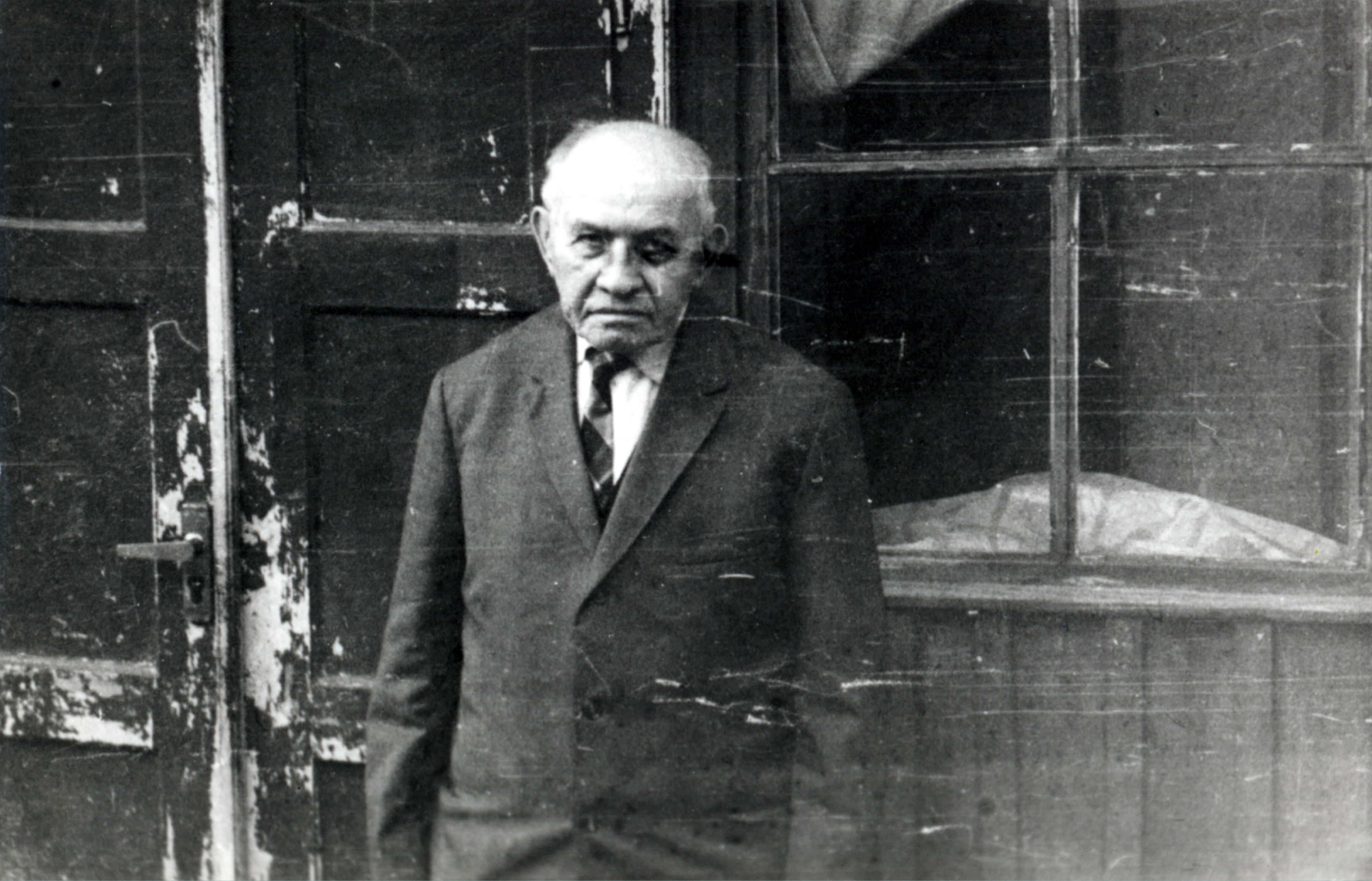Esiah Kleiman's father David Kleiman
This is my father David Kleiman photographed in front of his house in Chernovtsy. The picture was taken in 1970.
My father was a very intelligent and smart man. At 30 he had a house and owned a grocery store, which was located in his house. We lived there before the war. Like all other houses in this town their house was narrow. The biggest room in the house was for the grocery store. My father worked in the store, and my mother helped him, when there were more customers in the store. There were five other rooms in the house: two rooms for the children, my parents' bedroom and a dining room. There was big kitchen with a Russian stove that served for cooking and heating the house. There was a front and a back door to the house. There was a big flower garden and an orchard in the back. My mother did all the housekeeping herself.
I guess the store was quite profitable since we were a wealthy family. My parents were moderately religious. They wore worldly clothes. My mother and father liked fashionable clothes. My father never wore anything specifically traditional Jewish. My mother always had her hair neatly done. She didn't wear a wig; she only wore a shawl or a kerchief when she went to the synagogue. My father was more religious than my mother. On holidays they went to the synagogue together and on Saturdays my father went alone. He took me with him when I grew older. He had a prayer book, tallit and tefillin and prayed at home every day.
After World War II our family moved to Chernovtsy. My father didn't work anymore then; he was a pensioner. There were at least five synagogues in Chernovtsy before 1948 [when the campaign against ?cosmopolitans? began]. My father was very happy about it. He prayed at home every day and went to the synagogue after work on Saturdays. My mother joined him on Jewish holidays. We celebrated all Jewish holidays but my father didn't make a sukkah in the yard of our crowded house. On Purim my mother made hamantashen and sent shelakhmones to our relatives and acquaintances. My parents fasted on Rosh Hashanah and Yom Kippur and celebrated Pesach. My father conducted the seder according to all rules.
Matzah was sold in bakeries and synagogues before 1948, but then the Jewish school and theater were closed. There was only one synagogue left, and it became difficult to get matzah. I remember that there was an underground bakery. If the Soviet authorities had found it, they would have closed it for sure. My parents picked up matzah at night as well. We always had matzah on Pesach and ate no bread.
My father died in 1975. We buried him in accordance with Jewish traditions in the Jewish cemetery. There were two rabbis at his funeral - I invited one, and the other one came when he heard about my father's death. My father was buried wrapped in a shroud. I recited the required prayers. He was a respected man among Jews in Chernovtsy and many of them came to his funeral.
